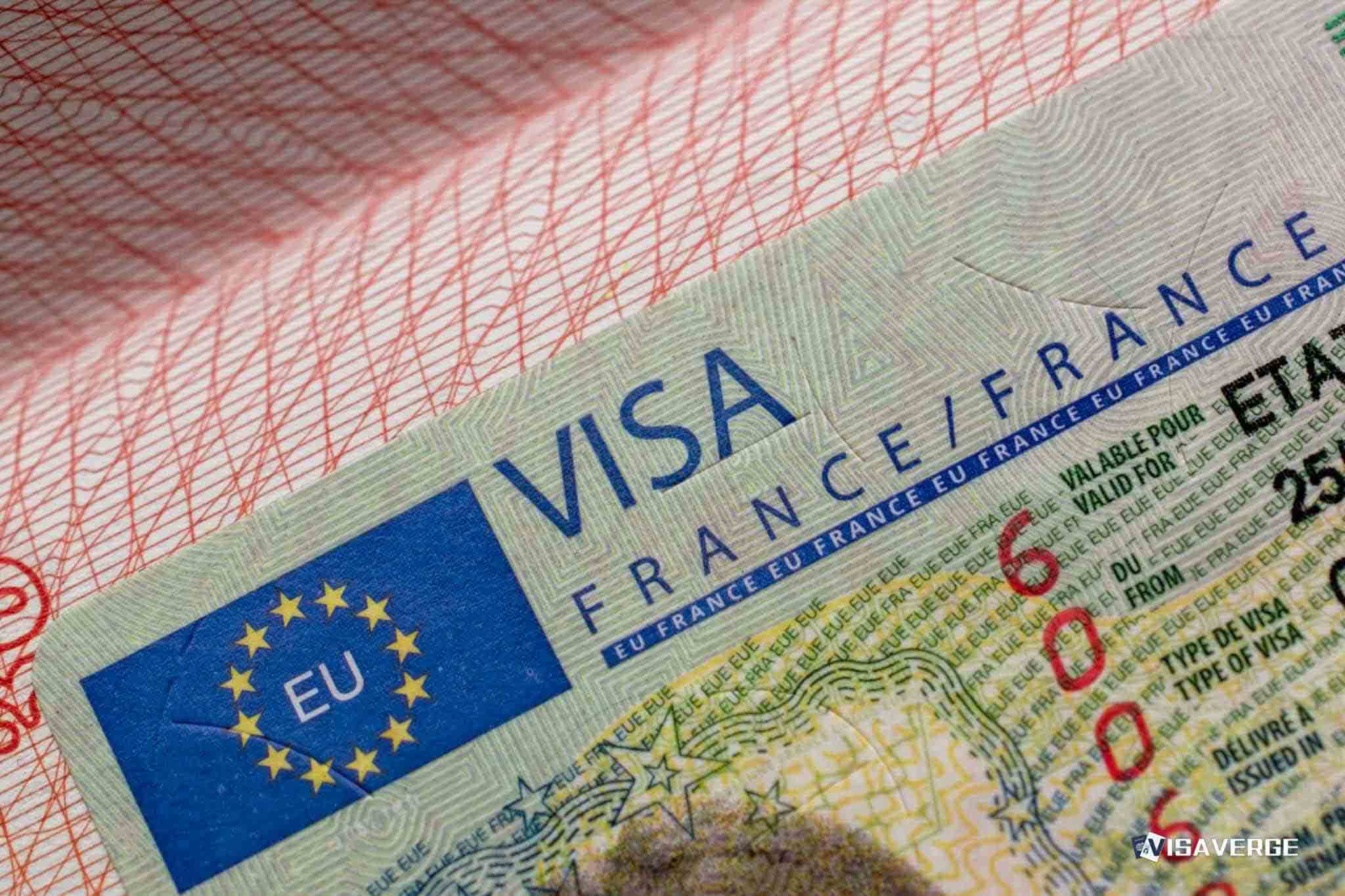Key Takeaways
• Trump administration announced TPS end for 350,000–500,000 Haitians, blocked by court until February 3, 2026.
• Haitian women TPS holders risk family separation, economic hardship, and violence if deported.
• Federal injunction protects TPS holders; legal and advocacy groups call termination harmful and unplanned.
The purpose of this analysis is to provide a clear, detailed examination of the Trump administration’s recent efforts to end Temporary Protected Status (TPS) for Haitian refugees in the United States 🇺🇸, with a special focus on the effects for Haitian women. This report covers the latest legal and policy developments, the numbers and demographics involved, the historical and legal context, the practical steps for TPS holders, and the broader implications for families and communities. The scope includes the period from June to July 2025, with data and perspectives from government, courts, advocacy groups, and affected individuals.
Methodology

This analysis draws on official government announcements, federal court rulings, advocacy group statements, and demographic data. It uses direct quotes and statistics from primary sources, including the Department of Homeland Security (DHS), U.S. Citizenship and Immigration Services (USCIS), the U.S. District Court for the Eastern District of New York, and organizations such as the Immigrant Legal Resource Center (ILRC). The report also references the latest guidance from the U.S. State Department and includes practical information from the official USCIS TPS page for Haiti.
Key Findings
- The Trump administration announced the end of TPS for Haitian refugees, but a federal court injunction currently blocks early termination, protecting TPS holders until at least February 3, 2026.
- Between 350,000 and 500,000 Haitians in the United States 🇺🇸 are affected, with a large share being women who are primary caregivers and essential workers.
- Ending TPS would have immediate and severe impacts on Haitian women, including family separation, economic hardship, and increased risk of violence if deported.
- Advocacy groups and legal experts argue that the move is harmful and lacks adequate planning for U.S. citizen children and vulnerable women.
- The situation remains fluid, with possible appeals and further policy changes ahead.
Data Presentation and Visual Description
To help readers understand the scope and impact of these changes, the following sections present the key data and trends using clear, accessible language and organized tables.
Recent Developments: Timeline and Legal Status
- June 30, 2025: The Trump administration announces the end of TPS for Haitians, with status set to expire August 3, 2025, and termination effective September 2, 2025.
- July 1–2, 2025: U.S. District Judge Brian Cogan issues an injunction, blocking the Trump administration from ending TPS before February 3, 2026.
- As of July 8, 2025: Haitian TPS holders keep their status and work authorization until at least February 3, 2026, pending further legal action.
Table: Key Dates and Actions
| Date | Event/Action | Impact on TPS Holders |
|---|---|---|
| June 30, 2025 | Trump administration announces TPS end | Planned end of TPS for Haitians |
| July 1–2, 2025 | Federal court blocks early termination | TPS extended to Feb. 3, 2026 |
| Feb. 3, 2026 | Current TPS expiration date (pending appeals) | Status and work permits valid |
Numbers and Demographics
- TPS Holders: 350,000–500,000 Haitians currently protected under TPS in the United States 🇺🇸.
- Women and Families: Many TPS holders are women, often mothers and primary caregivers, who work in healthcare, domestic work, and service jobs.
Visual Description: Imagine a pie chart showing the breakdown of TPS holders by gender, with a large section representing women. Another bar graph could show the types of jobs held by Haitian women with TPS, highlighting healthcare, domestic work, and service industries as the main sectors.
Policy and Legal Context
Historical Background
TPS for Haiti was first granted in 2010 after a major earthquake. The status has been renewed several times due to ongoing problems in Haiti, such as natural disasters, political violence, and instability. The Biden administration extended TPS for Haitians through February 3, 2026. The Trump administration, however, argued that conditions in Haiti had improved enough for people to return safely and tried to end TPS early.
Legal Challenge
Judge Brian Cogan ruled that the DHS Secretary, Kristi Noem, did not have the authority to end TPS before the expiration date set by the previous administration. The court said that many TPS holders had made important life decisions—like enrolling in school, working, and getting medical care—based on the expectation that their status would last until February 2026. The Trump administration argued that TPS is meant to be temporary and that Haiti is now safe, but the court found this argument did not outweigh the existing extension.
Implications for Haitian Women
Immediate and Long-Term Effects
- Family Separation: Many Haitian women with TPS are mothers to U.S. citizen children. If TPS ends, families could be split up, with children left behind or forced to move to unsafe conditions in Haiti.
- Economic Impact: Haitian women with TPS often work in essential jobs. Losing work authorization would mean loss of income, health insurance, and greater risk of exploitation.
- Health and Safety Risks: Deporting women to Haiti would expose them to high rates of gender-based violence, poor healthcare, and political unrest. The U.S. State Department warns against travel to Haiti due to kidnapping, crime, and civil unrest.
- Community Disruption: Haitian women are often leaders and support networks in their communities. Ending TPS would disrupt these networks and harm entire communities.
Expert and Advocacy Perspectives
- The Immigrant Legal Resource Center (ILRC) called the Trump administration’s move “cruel and heartless,” pointing out the lack of a plan for U.S. citizen children and the dangers facing deported women.
- Women’s rights and immigrant advocacy groups warn that ending TPS would hurt women the most, increasing risks of violence, poverty, and family separation.
Step-by-Step Procedures and Practical Guidance
For Haitian TPS Holders
- Current Validity: TPS and related Employment Authorization Documents (EADs) remain valid until at least February 3, 2026, according to the court order.
- Re-Registration: TPS holders must re-register during official periods. The most recent period was July 1, 2024, through August 3, 2025.
- Work Authorization: EADs have been automatically extended through September 2, 2025, and are expected to stay valid through February 3, 2026, unless there are further legal changes.
- Legal Resources: TPS holders should consult immigration attorneys and advocacy organizations for updates and to see if they qualify for other forms of relief.
Official Resources and Contacts
- For the latest updates and forms, visit the USCIS TPS page for Haiti.
- The Immigrant Legal Resource Center (ILRC) provides legal information and support.
- Local immigrant rights organizations, legal clinics, and national advocacy groups such as the ACLU and National Immigration Law Center can also help.
Key Stakeholders and Officials
- Secretary of Homeland Security: Kristi Noem (2025), leading the effort to end TPS.
- Federal Judiciary: Judge Brian Cogan, who issued the injunction blocking early termination.
- Advocacy Organizations: ILRC, ACLU, women’s rights groups, and Haitian community organizations.
Multiple Perspectives
| Stakeholder/Group | Position/Analysis |
|---|---|
| Trump Administration | Says TPS is temporary, Haiti is safe for return, wants to end TPS early |
| Federal Judiciary | Blocks early termination, upholds extension to Feb. 2026, cites reliance interests |
| Advocacy Groups | Condemn termination as inhumane, highlight risks to women and families |
| Haitian TPS Holders | Fear deportation, family separation, economic hardship, and violence in Haiti |
| U.S. State Department | Advises against travel to Haiti due to extreme danger |
Comparisons, Trends, and Patterns
Comparisons Over Time
- 2010–2025: TPS for Haiti has been extended multiple times due to ongoing crises.
- Biden Administration: Extended TPS through February 2026, citing continued instability.
- Trump Administration (2025): Attempted to end TPS early, arguing improved conditions in Haiti.
Trends
- The number of Haitian TPS holders has remained high, with many building lives, families, and careers in the United States 🇺🇸.
- Women make up a large share of TPS holders and are especially vulnerable to the effects of policy changes.
- Legal challenges and advocacy efforts have played a key role in delaying or blocking TPS termination.
Patterns
- Each time an administration has tried to end TPS, courts and advocacy groups have stepped in to challenge the decision, often leading to extensions or delays.
- The debate over TPS often centers on whether conditions in the home country are safe and whether it is fair to uproot people who have lived in the United States 🇺🇸 for many years.
Evidence-Based Conclusions
- Current Protection: Haitian women with TPS are protected from deportation and can work legally in the United States 🇺🇸 until at least February 3, 2026, thanks to a federal court injunction.
- Risks if TPS Ends: If TPS is ultimately terminated, Haitian women face serious risks, including family separation, loss of income, and exposure to violence and instability in Haiti.
- Ongoing Uncertainty: The situation remains uncertain, with possible appeals and further policy changes ahead. Advocacy and legal challenges are ongoing, and the final outcome may depend on future court decisions or changes in administration policy.
- Need for Legal Advice: TPS holders should seek up-to-date legal advice and monitor official announcements to protect their rights and explore other options.
Limitations
- Legal Uncertainty: The legal situation is still changing. The Trump administration may appeal the court’s decision, and higher courts could change the outcome.
- Data Gaps: Exact numbers of Haitian women with TPS are not available, but estimates suggest they make up a large share of the total.
- Changing Conditions in Haiti: The safety and stability of Haiti can change quickly, affecting future TPS decisions.
- Policy Shifts: Future administrations may have different approaches to TPS, leading to further changes.
Practical Takeaways and Next Steps
- TPS holders should keep their documents up to date and watch for official announcements about re-registration and work authorization.
- Consult trusted legal resources and advocacy groups for help and information.
- Families and communities should prepare for possible changes and seek support from local organizations.
- For the most current updates, visit the USCIS TPS page for Haiti and reputable advocacy organizations.
As reported by VisaVerge.com, the ongoing legal and policy battles over Temporary Protected Status for Haitian refugees highlight the high stakes for women, families, and entire communities. The outcome will shape the lives of hundreds of thousands of people in the United States 🇺🇸 and set important precedents for future immigration policy.
By staying informed and seeking legal support, Haitian TPS holders can protect their rights and plan for the future, even as the situation continues to evolve.
Learn Today
Temporary Protected Status (TPS) → A U.S. immigration status allowing humanitarian protection for nationals from disaster-affected countries.
Employment Authorization Document (EAD) → A permit granting TPS holders legal authorization to work in the United States.
Federal Injunction → A court order halting government action until legal issues are resolved.
Deportation → The forced removal of a non-citizen from the United States to their home country.
TPS Holder → An individual granted Temporary Protected Status protecting them from deportation and allowing work.
This Article in a Nutshell
The Trump administration’s effort to end TPS for Haitians faces a federal court block, protecting 350,000–500,000, including many women. This preserves their work rights and family stability until at least February 2026 amid ongoing legal battles and humanitarian concerns.
— By VisaVerge.com








